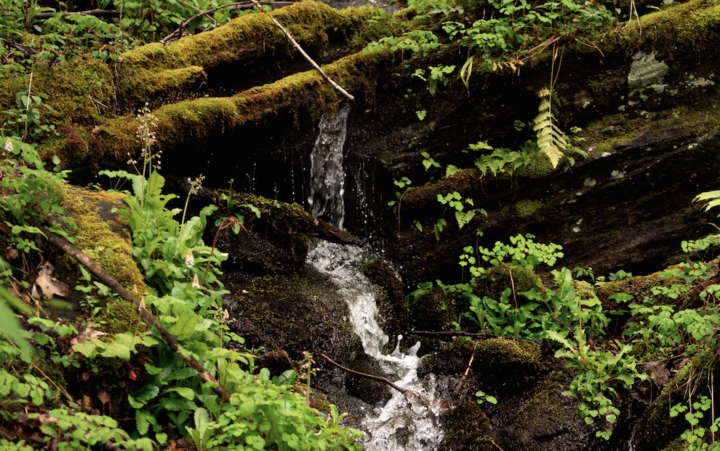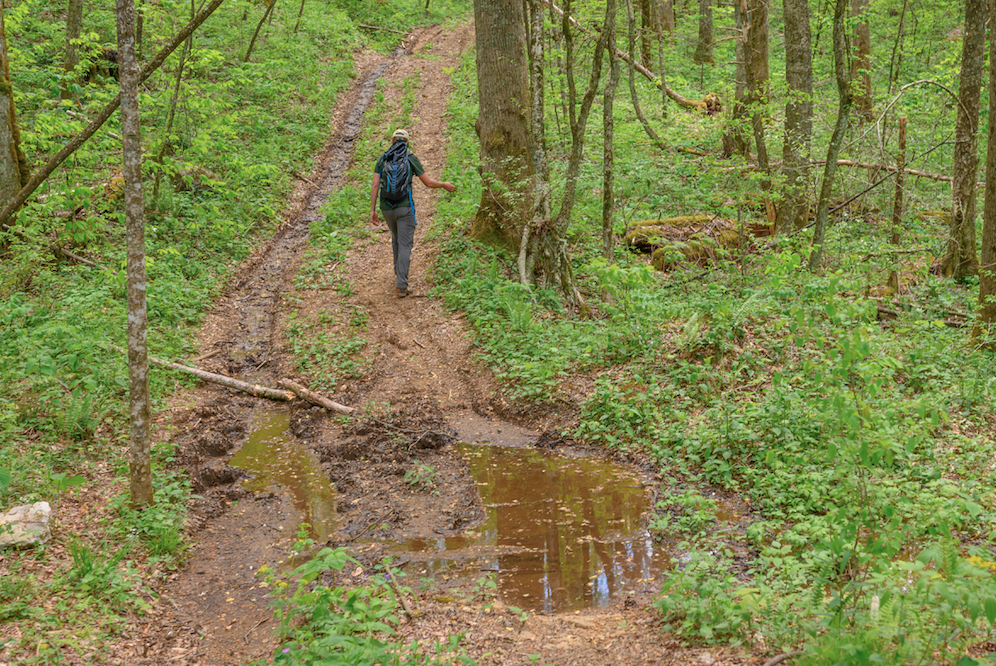By MountainTrue’s water team
The Nantahala and Pisgah national forests are the headwaters of seven major river systems, providing drinking water for millions of people in four Southeastern states and wildlife habitat for a bewildering array of native species such as the hellbender and native brook trout. Right now, the U.S. Forest Service is drafting the next forest management plan for the Nantahala and Pisgah national forests — a blueprint for how our forests will be managed for the next 15-20 years — and, unfortunately, the current draft is inadequate in a few very important ways when it comes to protecting water quality.

First and foremost, the Forest Service needs to meet or exceed the stream protection standards that they’ve set for other Southern Appalachian national forests such as the Chattahoochee, the Cherokee and the Jefferson. While the 100-foot buffer on perennial streams is good, the draft plan only affords intermittent streams a 15-foot buffer and provides no protection at all for ephemeral streams — the type of streams that make up the very beginning of the watershed networks we depend on.
Compare this to Cherokee National Forest, across the state line in Tennessee, which has a default riparian buffer of 100 feet on perennial streams and 50 feet on intermittent streams, as well as some protections within 25 feet of ephemeral stream channels. Cherokee National Forest also allows buffers to be increased to 264 feet in areas with steeper slopes, although limited harvest is allowed.
These buffers prevent stream banks from being degraded, provide shade and reduce sediment pollution due to timber harvesting, road building and other development. When these protective buffers are removed, water temperatures increase and sediment makes its way into streams and rivers. That excess sediment suffocates aquatic habitats and reduces populations of species such as trout, freshwater mussels and hellbenders.
The Forest Service should also adapt better timbering practices and improve road and trail maintenance to reduce sediment pollution. Forest roads in backcountry areas that will be passively managed should be decommissioned or repurposed for trails. This would help prevent erosion and sediment pollution and extreme flooding in forest rivers and streams due to heavy rains, storms and stormwater runoff.
Finally, there are nine Outstanding Resource Waters in the Nantahala and Pisgah national forests. These are watersheds that are determined to have excellent water quality and exceptional ecological or recreational significance, and the Forest Service should make sure they are named and protected in the final plan.
The Forest Service’s deadline for public comment is June 29, and this is our last significant chance to have our say. Submit your comment today at mountaintrue.org/forestplancomment, through the Forest Service’s CARA portal, or by U.S. mail addressed to Plan Revision Team, National Forests in North Carolina, 160 Zillicoa St., Asheville, NC 28801. (All postal mail must be postmarked by June 29 to be considered, according to the Forest Service’s website.) Help us win better protections for the 1,200 miles of streams and rivers of Nantahala and Pisgah national forests.
The nonprofit MountainTrue’s water team includes French Broad Riverkeeper Hartwell Carson, Green Riverkeeper Gray Jernigan, Broad Riverkeeper David Caldwell, Watauga Riverkeeper Andy Hill and MountainTrue Western Regional Director Callie Moore.




Before you comment
The comments section is here to provide a platform for civil dialogue on the issues we face together as a local community. Xpress is committed to offering this platform for all voices, but when the tone of the discussion gets nasty or strays off topic, we believe many people choose not to participate. Xpress editors are determined to moderate comments to ensure a constructive interchange is maintained. All comments judged not to be in keeping with the spirit of civil discourse will be removed and repeat violators will be banned. See here for our terms of service. Thank you for being part of this effort to promote respectful discussion.